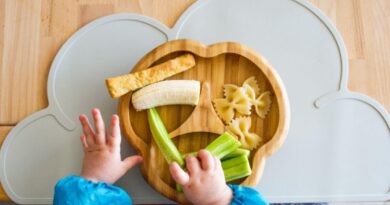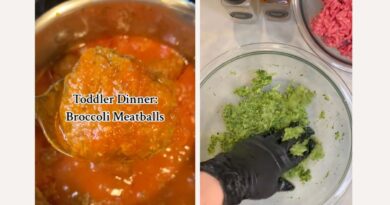Parents controlling food: getting the balance right for happy eaters
Have you ever considered the HOW part of feeding? What you do at mealtimes when your child is eating? How you talk about food? The mealtime dynamic? If parents controlling food really matters?
HOW you feed your child is just as important as WHAT you feed them because they will learn from you, your manner and beliefs around food and what you say, do or don’t do.

Should parents be in control of their child’s food?
It’s a delicate balance when it comes to a parent’s role in their child’s eating habits.
Children, by nature, are still learning and are not good nutrition decision makers and need their parents guidance.
However, this guidance should not turn into parents controlling food strictly.
While parents should provide healthy options and educate their children about nutrition, it’s equally important to foster a sense of autonomy.
Allowing children to make choices within the healthy options presented to them helps them develop a sense of independence and a positive relationship with food.
This diplomatic parenting style approach empowers children to make good nutritional choices in the long run while avoiding the pitfalls of excessive control and food restriction.

Understanding Food Restriction
Understanding food restriction is vital in creating a healthy eating environment for children.
It’s a practice where parents control the type and amount of food their children consume.
Parents controlling food through restriction might seem beneficial when we’re talking about sweets and cake but it can lead to a child feeling deprived and potentially developing an unhealthy relationship with food.
This control can stem from concerns about nutrition or weight, but it’s important to recognise its potential drawbacks. Strict food rules can make eating a stressful experience, rather than a natural, enjoyable part of life.
It might lead children to feel anxious around food, or develop a sense of guilt or shame associated with eating certain foods. These negative associations can disrupt a child’s ability to listen to their body’s hunger and fullness signals, leading to overeating or undereating.

Understanding the Psychology of Forbidden Foods
When we tell children they can’t have certain foods, it can make them really curious about those foods.
It’s like when someone tells you not to do something, and you really want to do it.
This happens because children are learning to make their own choices.
If we say some foods are bad and they can’t have them, children might think about these foods a lot. Then, when they finally get these foods, they might eat too much of them.
But, if we let children have all kinds of foods in a normal way, they learn to enjoy them without thinking they are special or bad.
This helps children make good choices about what they eat, based on what’s healthy and what they like.

Consequences of Excessive Control
When parents are too strict about what their children eat, it can cause some problems straight away but also as they get older.
Children might start to argue more about food and feel stressed during meals.
They might also start hiding and eating foods they think their parents won’t like, which isn’t a healthy way to eat and can be linked to feeling shameful of what they are eating.
Being too controlling can make kids worry a lot about their food and body, which can have lifelong effects.
When parents can be more relaxed about food, letting kids try different things and decide when they are hungry or full they can learn to enjoy food in a healthy way.
That’s where knowing your food parenting style comes in.

What is food parenting?
Your food parenting style describes how you interact with your child around food, feeding and mealtimes.
Your style will influence your child’s relationship with food, their nutritional choices throughout their life, their food likes and dislikes, their eating habits and their ability to self-regulate appetite, eating because they are hungry and stopping when they are full.
Food parenting style can heal or harm and getting your food parenting right can prevent childhood eating problems such as fussy eating, overeating and even eating disorders.

How did I get my food parenting style?
Your food parenting style is influenced by your own childhood experiences of food and feeding.
Many parents inherit how they feed their children from the way their parents fed them.
If you weren’t allowed to leave the table till you’d cleaned your plate, for example, you are more likely to overly encourage your own children to clean their plate too.
If your parent hid their own stash of sweets, because they were naughty or forbidden, you are more likely to restrict foods with your children too.
Our generationally inherited eating habits often came from a good place, for example if food was scarce, of course your parents wanted you to eat as much as they could provide, they probably weren’t sure when the next square meal was coming.
Or perhaps you were a skinny child and your mum was constantly worried that you were underweight and picking up bugs, what she did back then was likely fuelled by misinformation and desperation tactics.
Knowing your food parenting style can help you understand the way you deliver food messages to your child and the impact they might be having on them. It also helps you improve and become a better food parent.
What are the different Food Parenting styles?
There are four food parenting styles described in research, they are:
- Controlling
- Indulgent
- Uninvolved
- Diplomatic
It’s fair to say that all of us use all 4 styles of food parenting day-in, day-out but usually one is more dominant than the other.
Below the 4 styles are described, see if you can identify which one you tend to use most with your children.

Controlling
This is a strict food parenting style where the parent, rather than the child, makes decisions about what, when, or how much the child should eat.
It’s a ‘do what I say’ approach where the parent enforces rules around food and eating with high expectations of the child.
Parents who identify with the controlling food parenting style may:
- Pre plate their children’s food deciding on how much they want them to eat
- Ask them to eat a certain part of the meal “don’t forget to eat your broccoli”
- Tell them to ‘clean your plate’
- Withhold pudding unless they’ve eaten their dinner
- Re-present an uneaten meal later
- Reward good eating
- Restrict certain foods like sweets or chocolate
Children who are parented this way tend to lose sight of their hunger and fullness cues, they eat because they have been instructed to not because they are hungry.
They can go on to overeat and carry extra weight because they have lost their internal appetite regulation signals.
The controlling food parenting style can lead to fussy eating and in fact, make fussy eating worse, despite their parents intention being just wanting their child to eat well.

Indulgent
This is where parents almost always say ‘yes’ to whatever the child asks for, even if they’ve said no fifty times first.
Often if you were raised by parents who displayed the controlling food parenting style, you can go the opposite way and become an indulgent food parent with your own children.
Indulgent food parents may:
- Cook a new meal for their child because they’ve rejected their first meal.
- Let their child snack or graze all day.
- Allow their child to decide on what they want for dinner.
- Don’t have a daily routine for meals and snacks
Children raised by parents with the indulgent feeding style often have poor appetite regulation from constant grazing. They don’t know what it feels like to be hungry or full. As a result they can overeat and carry extra weight.
Often they are fussy eaters with a narrow range of accepted food. We know that’s because they have been catered for with favourite foods. Knowing a preferred meal will follow a rejected one, children lack incentive to try new foods.
Children tend to eat more sweet and high fat foods than children parented in other ways and nutritional deficiencies can also occur. This includes foods such as sweets, crisps, chocolate, chips, cakes, biscuits, pastries, pies.

Uninvolved
This is a ‘hands off’ approach when it comes to food.
Parents are either very busy with no time to plan for food or perhaps are just not ‘foodie’ people and have little interest in shopping, cooking and serving food.
Uninvolved food parents tend to:
- Have no meal plan or menu
- Open the fridge and wonder what to cook for dinner tonight.
- Have no set times or a routine for meals and snacks
- Eat on the hoof, when hunger strikes.
To a child, this is chaos and unpredictable. Children thrive on routine and when there isn’t one they feel insecure. To compensate, food becomes a high priority for the child and they can end up hiding food, sneaking food and be thinking about food all the time.
Children who have been food parented in the uninvolved style can develop trust issues with their parents and can either go on to gain extra weight for over eating when the opportunities arise or become underweight if scarcity of food is an issue.
Sadly this sometimes happens when there is not enough money for food available.

Diplomatic
These are parents who are more tuned in to their children’s needs and as a result, are more responsive.
They get the balance just right between setting boundaries and rules whilst allowing their child to make their own decisions around how much to eat.
A diplomatic food parent is in charge of what the food will be, when it will be served and where the child will eat. They will trust their child to eat however much they choose, and not intervene if they think it’s not enough.
This is called the Division of Responsibility in feeding, a philosophy created by dietitian and family therapist Ellyn Satter.
A diplomatic food parent will:
- Have sensible boundaries and limits around mealtimes that are appropriate to the age and stage of their child.
- Respect their children’s food preferences when meal planning but appreciate their need to learn to like new foods.
- Have a predictable meal and snack schedule every day.
- Allows their child to self-serve their own portion size, with help with the lifting and scooping if needed.
- Have ‘fun foods’ like sweets, chocolates, cakes, biscuits, crisps etc regularly as part of a healthy eating plan.
This style of food parenting is optimal in supporting you to raise a healthy child as the research shows that children raised this way are less likely to gain too much weight, more likely to eat because they are hungry and not to deal with emotions, choose healthier options such as whole grains and fruit and veg.

Have you identified your Food Parenting style?
I hope this article helps you understand that HOW your feed your child is just as important as what you feed them, in fact I’d go as far to say its the missing link that we parents are just not told about, yet so important in helping them develop their future food relationship.

The post Parents controlling food: getting the balance right for happy eaters appeared first on The Children's Nutritionist.




